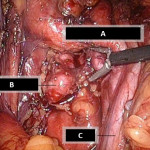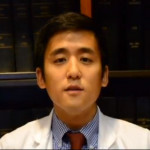The future of Urological Surgical Training
 Dear Urology Trainees and Trainers,
Dear Urology Trainees and Trainers,
Here are some thoughts stating my reasons for resigning as an educational supervisor – please add your views and help form and drive the debate. Keeping them to yourself, and doing nothing, won’t change anything!
“I have resigned as an official educational supervisor / trainer. This does not mean that I am going to cease to train – far from it: I shall continue to lecture, teach, educate, support, nurture and mentor urological trainees in general, and those who have a subspecialist interest in “EndoLuminal EndoUrology” in particular. But it has become increasingly clear to me (and the senior trainees that I have had over the last decade) that the process of form-filling actually gets in the way of training rather than enhancing it.
As the current round of achieving the appropriate number of Work based assessment (WBA) and Multi-source Feedback (MSF) forms reaches fever pitch, my senior trainee needed to miss the educational opportunity of my monthly super-specialist metabolic stone clinic to have time to complete all his forms. And we both missed half of our stone committee meeting to “sign them off”. The discussions are valuable (we have these continuously); the process is not.
Time is finite, and sadly in inadequately short supply. Part of my role as a consultant is to decide how to spend it most wisely; part of my role as a trainer is to teach my trainee how to do the same. We have reached the conclusion that a form-filling box-ticking exercise, in which regardless of seniority and competency we still have to attest his ability to appropriately prepare and drape a patient for every single case, is not fit for purpose. I would willingly complete these forms ad infinitum if my trainee said they were useful and helped them, but they do not.
So, as stated above, I have decided, until such time as the fixed and rigid process that we work to becomes more flexible and adaptable to the specific and individual needs of trainees, that I can no longer waste their time (or mine) adhering to a rule just because it is a rule. I reiterate my second line to emphasise that this does not mean I am going to discontinue to train; it simply means that I am going to discontinue to complete the forms that are used as evidence that I have. I think the “final product” of a more senior, technically adept and consultant-ready surgeon that leaves the unit at the end of the year, compared with the one that arrived at the start of it (as judged by an independent expert colleague) would provide far better evidence of that than any number of electronic forms.”
It would be particularly good to hear comments from trainees because this is not just for your immediate future, but as the soon-to-be trainers of the future. So yours are the key opinions needed to get this right!
Daron Smith, Consultant Urological Surgeon, Endoluminal Endourology Unit, UCLH.
@endoluminalendo




An eloquent & rational plea for proportion. I agree with your sentiments and frustrations Daron. I find myself writing the same inane things on forms often long after the alleged assessment took place. Personally I think my trainees get much more out of me supporting & guiding them as they struggle a bit to get through a difficult case and then have a good debrief chat over coffee. Trying to fill in a rigid form at this point just seems to detract from the conversation
Although i am not involved in UK training but congr for a very well-articulated and thought provoking article. Thank you for speaking up Daron???
bw/ Mudhar Hasan Stockholm-Sweden
I agree with your sentiments Daron. For trainees having difficulties with aspects of training, WBAs can be useful, and can be used to structure training. For the vast majority they are not fit for purpose. Individual plans are the way forward.
There seems to be less form filling across the pond as I seek opinions from residents at #AUA18
These structured forms were introduced by educationist rather than surgical trainers and perhaps in the future we can get machine learning algorithms to make these judgements of competence? Just gently adding to the debate.
There cannot be a standardised approach to surgical training. Each one of our trainees has different needs and these need addressing in different ways, tailored to the individual. A dogmatic minimum number of predominantly irrelevant tick box forms does not help anything or anyone, and it is not in any way tailored to that individual’s needs. There are some circumstances where trainees in difficulty can be identified and hopefully supported by the repetitious nature of current WBAs but for the majority of trainees they are a waste of everybody’s time.
I have no qualms with completing assessments which show competence (although the ability to demonstrate excellence should also be supported) but an indicative number, fixed irrespective of the trainee makes the exercise frustrating and wasteful.
We urgently need a review of the systems we use for assessment to allow training suited to each trainee, yet providing the required evidence of ability to progress.
I hope to hear the views of many trainees of this topic.
The majority of assessment tools used currently were developed primarily for use in undergraduate training, and there is poor evidence for their use in skills-based training. There is absolutely no evidence for the number of assessments to be used as a marker of competence or quality, which appears to be frequent practice now.
While assessment tools may have a supporting role to play in evaluating trainees, I would suggest that a return to an apprenticeship model would be beneficial – as long as this is externally assessed and validated regularly.
Many things have been changed in recruitment and training under the guise of improvement that actually have extremely negative impact on trainees.
Unfortunately,once in place no one challenges them. Well done Daron for challenging and voicing publicly what many feel.
I think their needs to be serious changes to the way we recruit, assess and monitor trainees.
No one disputes that regular feedback on performance is required to help progression, nor that there must be ways to standardize the process.
However, unless the box ticking is meaningful it’s just yet another distraction from actually spending time learning.
There are now so many hoops trainees must jump through their is almost not enough time to focus on learning to be a clinician!
It’s crucial in the current environment of so much dissatisfaction, stress and burnout amongst medical professionals that we find a way to ensure that the processes in place for both trainee recruitment and assesment are fit for purpose.
I don’t have the answers but I think it’s great that we’ve started the debate and as a group of highly educated individuals I’m sure we can come up with some ideas!
Well said Daron – we need to focus on training not on the box ticking and they don’t always align.
Interesting blog Daron which makes some excellent points. I do see where you are coming from, but I very much doubt in these days of “Big Data” that you will be able to get away with not documenting these educational interactions. The information I imagine may be of relevance later, especially if the individuals concerned run into any trouble. Maybe the answer is to speed through the tedious form filling and focus on the interactive educational experience which is so crucial for the development of the urologists of the future.
Mark Twain said ;Training is everything. The peach was once a bitter almond; cauliflower is nothing but cabbage with a college education.
Assessment tools should help us educate not constrain us
Fight the good fight Daron and all wish you all the luck from Sweden
Agree with your sentiments Daron. Problem is we also need to assure that trainers assess appropriately and thus allowing subjective rather than objective assessments could lead to discrimination. Regulation is important but perhaps, as you say, we need to look at redressing the balance and reducing not removing the number of forms that trainees need to fill.
I get a sense of this frustration myself when I am filling forms for my UK trainees who come to Melbourne on Fellowship. Got to change!!! Otherwise the really talented folk (like Daron Smith), will leave. This is a serious situation. I would not ignore this if if were in charge in the UK. The education leaders need to engage urgently with the educators on the ground
2 thoughts
If assessments of operative capability are to be fair and accurate one could argue that they should happen after every case, not selectively as now. If so assessments would need to be quicker. How about …
A. Difficulty of operation scored 1-5
B. Trainee scores their own performance 1-10
C. Trainer scores performance 1-10
D. Free text discussion
2. Currently no assessment of performance in opd. I can’t remember a single directly observed consultation. Is that adequate ?